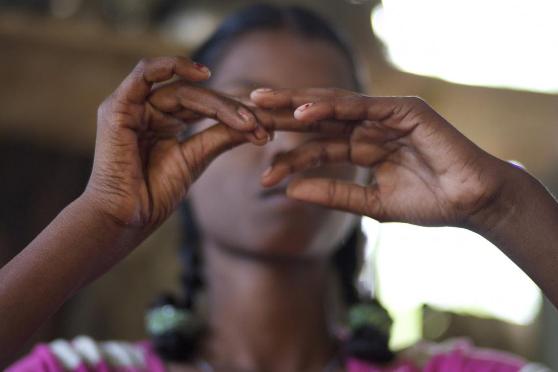By Nethmini Medawala and Shabeer Mohamed
The COVID-19 pandemic that has been impacting Sri Lanka for the past one and a half years has had wide-ranging economic and social repercussions for people from all walks of life from the loss of livelihood and education to domestic violence and child abuse. Women and children have been disproportionately affected on multiple fronts.
In July alone, four cases of extreme violence against children were reported: a 13-year-old girl from Nawalapitiya had been allegedly sexually abused by her father since the age of seven; a 15-year-old girl was subjected to sex trafficking; two children aged 12 and 14 were allegedly abused by their father resulting in pregnancy, and a 16-year-old girl who was illegally employed at the residence of MP Rishad Bathiudeen died of burn injuries.
Each of these victims was a child under the age of 18 and was deprived of his/her fundamental human rights, including the right to education. In Sri Lanka, the law provides for the compulsory education of every child below the age of 16.
All of us, from the Child Rights Promotion Officers (CRPO) attached to the Divisional Secretariats to the police and the Cabinet of Ministers to representatives of the media and civil society should take responsibility for the atrocity of child sexual abuse and exploitation.
Investigations have found that 11 minors were illegally employed at Bathiudeen’s house. How can such incidents occur for long periods of time with no repercussions? The very fact that a politician who was elected to represent the interests of the people and draft the laws that govern the country employs a child in gross violation of the country’s law demonstrates how entrenched the issues of child trafficking, labour, abuse, and exploitation are, and the culture of impunity surrounding these issues.
According to police reports, 41 suspects have been arrested in connection with the sex trafficking of the 15-year-old girl including the Deputy Chairperson of the Mihintale Pradeshiya Sabha, a cardiologist attached to a Navy Hospital, a Sub-Inspector of Police, a former bank manager, an actor, a ship’s captain, and a Buddhist monk.
Every day human beings, especially women and children, are illegally trafficked. The internet has provided a space for traffickers to engage in their crimes with little to no regulation. While the webpage involved in the incident of trafficking has been restricted by the Telecommunication Regulatory Commission, this is hardly enough. There are many more active sites. The number of websites and social media pages that contain non-consensual intimate images of women and girls as well as LGBTIQ+ Sri Lankans are on the rise; no sufficient action has been taken to moderate the content by social media companies.
The website had been used for the trafficking of women, including minors, for 12 years. How many others have suffered the same fate before it was shut down? The state, which should act in the best interests of children, has completely failed in its responsibility. The inherent delays in our justice system make it difficult for anyone to access justice.
When we spoke to Professor Muditha Vidanapathirana, Chairperson of the National Child Protection Authority (NCPA), to get his comment we were baffled by his response. When asked about the reasons for the increase in child abuse, he said “There were 8558 incidents in 2019 and 8165 incidents in 2020 and 4740 incidents in the first six months of 2021, so there is no increase. This is the normal situation.” He also said that increased media reporting on the issue had generated heightened public interest.
It is widely accepted that the number of incidents that are reported is just the tip of the iceberg. Due to the stigma around sexuality and violence, many incidents are not brought to light and reported to institutions such as the NCPA and the police.
According to the 2020 report released by the Auditor General, the NCPA has received 79,259 complaints since 2012, of which 42,073 have not been resolved. This is 53% of the total complaints received by the institution. A Save The Children Global Report for 2020 ranked Sri Lanka the 60th place for protecting children among all countries in the world.
While advocacy efforts and immediate policy interventions are required, it is clear government institutions need to play a much more proactive role to curb child abuse. All of us have a responsibility. If we see something, we have to say something. We cannot afford to keep quiet. The next generation is counting on us.
-Nethmini Medawala and Shabeer Mohamed are from Hashtag Generation and this article was originally featured on groundviews.org


